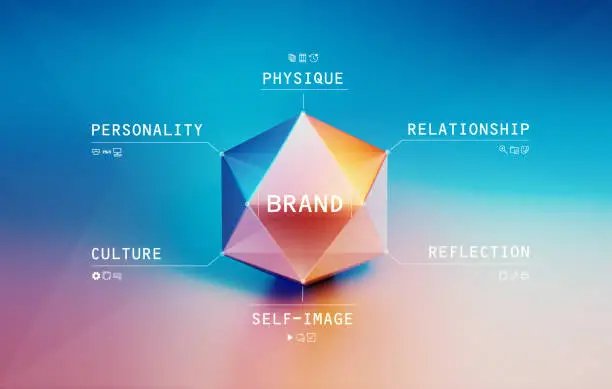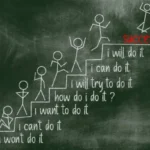In today’s hyper-competitive job market, standing out is not just an advantage—it’s a necessity. And that’s where personal branding comes in. But what exactly is personal branding, and how can it skyrocket your career? Buckle up as we dive deep into personal branding skills that can transform your career trajectory and help you carve your own unique space in your industry.
Understanding Personal Branding
What is Personal Branding?
Think of personal branding as your professional fingerprint. It’s the way you present yourself to the world—the values, skills, and personality traits that make you unique. Unlike a company brand, personal branding is all about you. It’s your reputation, your story, and your promise to those who come into contact with you professionally.
Why Personal Branding Matters in Your Career
Why should you care? Because employers, clients, and colleagues aren’t just hiring your skills—they’re hiring you. A strong personal brand helps you build trust, open doors, and establish credibility. In the words of Jeff Bezos, founder of Amazon, “Your brand is what people say about you when you’re not in the room.” So, what do you want them to say?
Core Personal Branding Skills You Need
Self-Awareness and Authenticity
The foundation of personal branding is knowing who you are and being true to that identity. Authenticity resonates because it’s genuine. People can spot a fake from miles away—so the real you is your best asset. Reflect on your strengths, values, and passions. What makes you, you?
Effective Communication Skills
Personal branding isn’t just about who you are—it’s about how you communicate that. Whether it’s writing emails, speaking in meetings, or posting on LinkedIn, your ability to communicate clearly and confidently is crucial. Good communication turns your brand from an idea into a reality that others understand and appreciate.
Consistency Across Platforms
Imagine if a famous brand changed its logo every day. Confusing, right? The same goes for personal branding. You want your message, tone, and visuals to be consistent whether you’re on LinkedIn, Twitter, or in person. This builds recognition and trust over time.
Building Your Personal Brand Step-by-Step
Defining Your Unique Value Proposition
What do you bring to the table that nobody else does? Your unique value proposition (UVP) answers that question. Maybe you’re a problem-solver, a creative thinker, or a tech wizard. Be clear and specific because your UVP becomes the core message of your brand.
Crafting Your Personal Brand Statement
This is a short, powerful sentence or two that captures your UVP. It’s your personal elevator pitch. For example, “I help small businesses grow their online presence through smart, data-driven marketing.” It’s simple, direct, and memorable.
Creating an Online Presence
In today’s digital world, your online presence is often your first impression. Make sure your LinkedIn profile, portfolio site, and any social media profiles reflect your brand statement. Use professional photos, showcase your achievements, and share content that highlights your expertise.
Leveraging Social Media for Personal Branding
Choosing the Right Platforms
Not all social media channels are created equal. If you’re a creative professional, Instagram or TikTok might be your playground. For corporate roles, LinkedIn is king. Pick platforms where your target audience spends time and focus your energy there.
Content Creation and Sharing Strategies
Sharing valuable content regularly keeps you visible and positions you as an expert. Write articles, post updates, comment on industry news, or share your journey. Remember, engagement beats broadcasting—interact with others and build relationships.
Networking as a Personal Branding Tool
Building Genuine Connections
Networking isn’t about collecting business cards; it’s about meaningful relationships. Approach networking with curiosity and generosity. Ask questions, listen more than you speak, and find ways to help others. This creates a positive brand impression that lasts.
Using Networking to Enhance Your Brand
Attend events, join online groups, or participate in webinars to put your brand out there. The more people who know and like your brand, the more opportunities will come your way.
The Role of Professional Appearance and Behavior
Dress for Success and Personal Style
You don’t have to wear a suit to look professional, but dressing appropriately for your industry and maintaining good grooming sends a message of self-respect and seriousness about your career.
Demonstrating Professionalism in Daily Interactions
Punctuality, respect, and positive attitude might sound basic, but they are powerful branding tools. Your behavior reflects your brand just as much as your resume.
Storytelling to Boost Your Personal Brand
Why Storytelling Works
Humans are wired for stories—they’re memorable and emotional. Sharing your career journey, challenges, and successes makes your brand relatable and authentic.
How to Tell Your Career Story Effectively
Keep it simple and focus on moments that shaped you professionally. Highlight lessons learned and how those experiences connect to your brand promise.
Measuring and Adjusting Your Personal Brand
Monitoring Your Online Reputation
Google yourself regularly. Set up alerts for your name and track mentions. Respond professionally to feedback or criticism.
Adapting Your Brand as You Grow
Personal branding is not static. As you gain skills and shift careers, update your brand to reflect your current goals and expertise.
Overcoming Common Personal Branding Challenges
Handling Negative Feedback
Criticism is inevitable. Use it constructively to improve your brand, but don’t let it derail your confidence.
Avoiding Inauthenticity
Don’t try to be someone you’re not. Authenticity builds lasting trust—pretending does not.
Case Studies of Successful Personal Brands
Elon Musk’s Authentic Innovation Brand
Musk’s brand centers around bold innovation and risk-taking. His public persona matches his professional achievements, creating a powerful personal brand.
Oprah Winfrey’s Empathy-Driven Brand
Oprah’s brand is built on empathy, authenticity, and empowerment—values she consistently demonstrates across all her ventures.
Tools and Resources for Personal Branding
Useful Online Tools
Platforms like Canva for branding visuals, LinkedIn for professional networking, and Google Alerts for reputation management are invaluable.
Books and Courses to Consider
Books like “Crush It!” by Gary Vaynerchuk or courses on Udemy about personal branding can offer guidance and inspiration.
Personal Branding for Different Career Stages
Students and Early Career Professionals
Start early by building your online presence and gaining relevant experience. Internships, volunteering, and personal projects add to your brand.
Mid-Level and Senior Professionals
Focus on thought leadership, mentoring, and expanding your network. Your brand should reflect your expertise and leadership.
The Impact of Personal Branding on Job Opportunities
How Personal Branding Attracts Recruiters
Recruiters often find candidates online before interviews. A strong, consistent personal brand makes you memorable and trustworthy.
Personal Branding for Freelancers and Entrepreneurs
For freelancers, your brand is your business. It helps you attract clients and negotiate better rates by showcasing your unique value.
Maintaining Your Personal Brand Long-Term
Staying Relevant in Your Industry
Keep up with trends, attend conferences, and engage in continuous learning to ensure your brand stays fresh.
Continuous Learning and Growth
Invest in yourself through courses, reading, and new experiences. Growth fuels your personal brand and keeps it evolving.
Conclusion
Personal branding is your secret weapon for career success. It’s about intentionally shaping how the world sees you by combining your unique strengths, clear communication, and consistent presence. By mastering the skills discussed here—from authentic storytelling to strategic networking—you’ll build a personal brand that opens doors and propels your career forward. Remember, your brand is a journey, not a destination. Keep nurturing it, and watch your career soar.
FAQs
Q1: How long does it take to build a strong personal brand?
Building a personal brand is a continuous process but you can see noticeable results within 6 months if you consistently apply the right strategies.
Q2: Can personal branding help if I’m switching careers?
Absolutely! A strong personal brand can help you highlight transferable skills and create a fresh narrative for your new career path.
Q3: Should I hire someone to build my personal brand?
It depends. If budget allows, professional branding consultants can help, but much of it you can do yourself with dedication and the right resources.
Q4: How often should I update my personal brand?
Review your brand at least twice a year or whenever you experience major career changes to keep it aligned with your goals.
Q5: Is personal branding only for entrepreneurs and freelancers?
Not at all! Personal branding benefits everyone, whether you’re climbing the corporate ladder, freelancing, or running your own business.
If you want to dive deeper into personal branding techniques, check out resources like Gary Vaynerchuk’s personal branding advice or LinkedIn Learning’s courses on personal branding.





